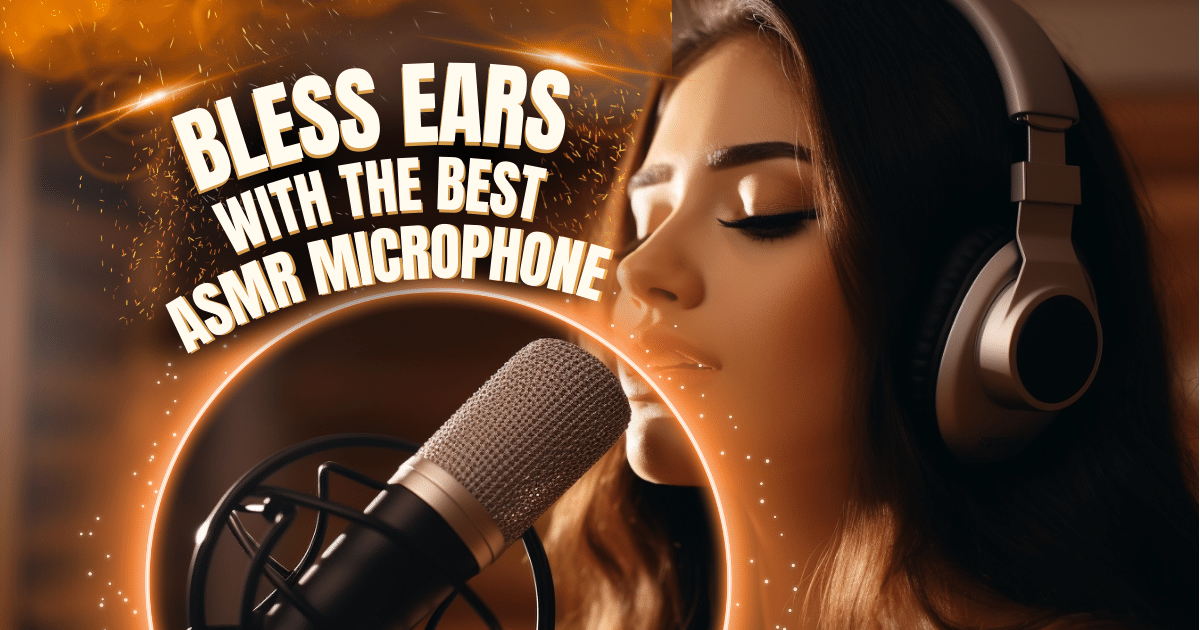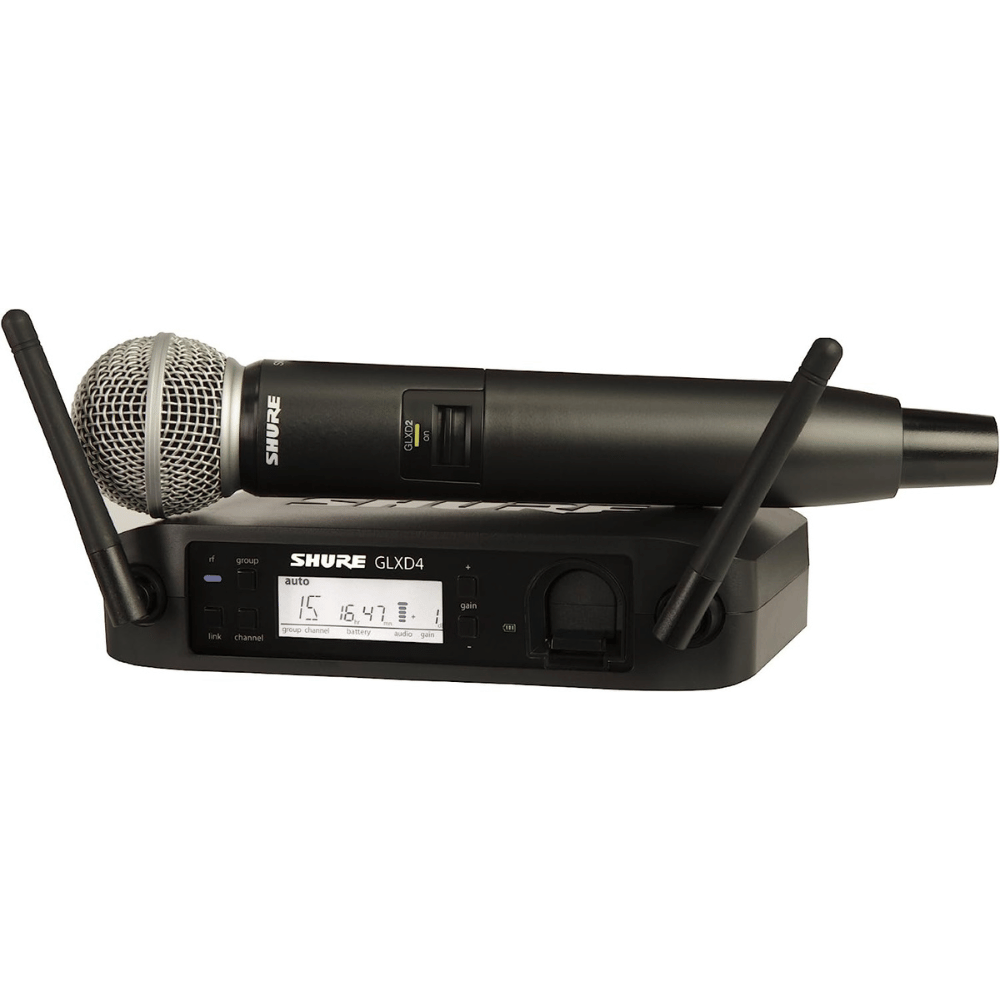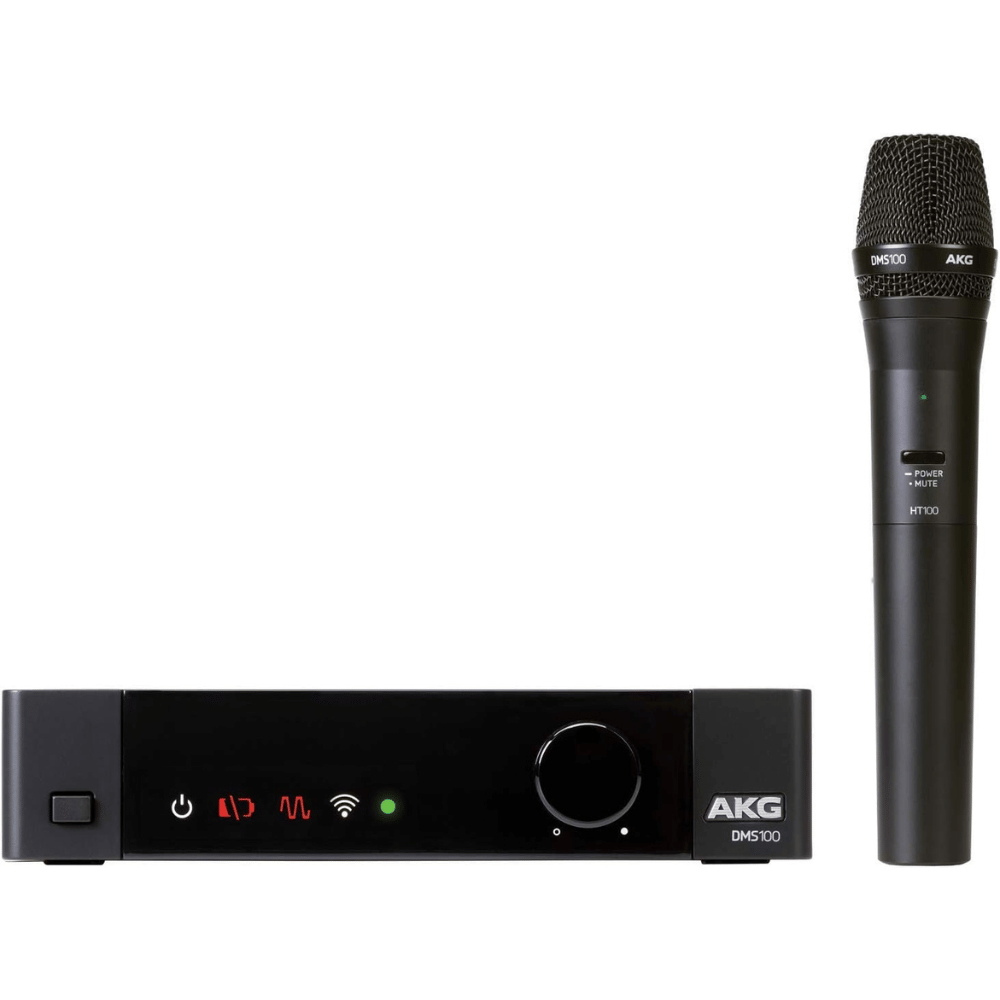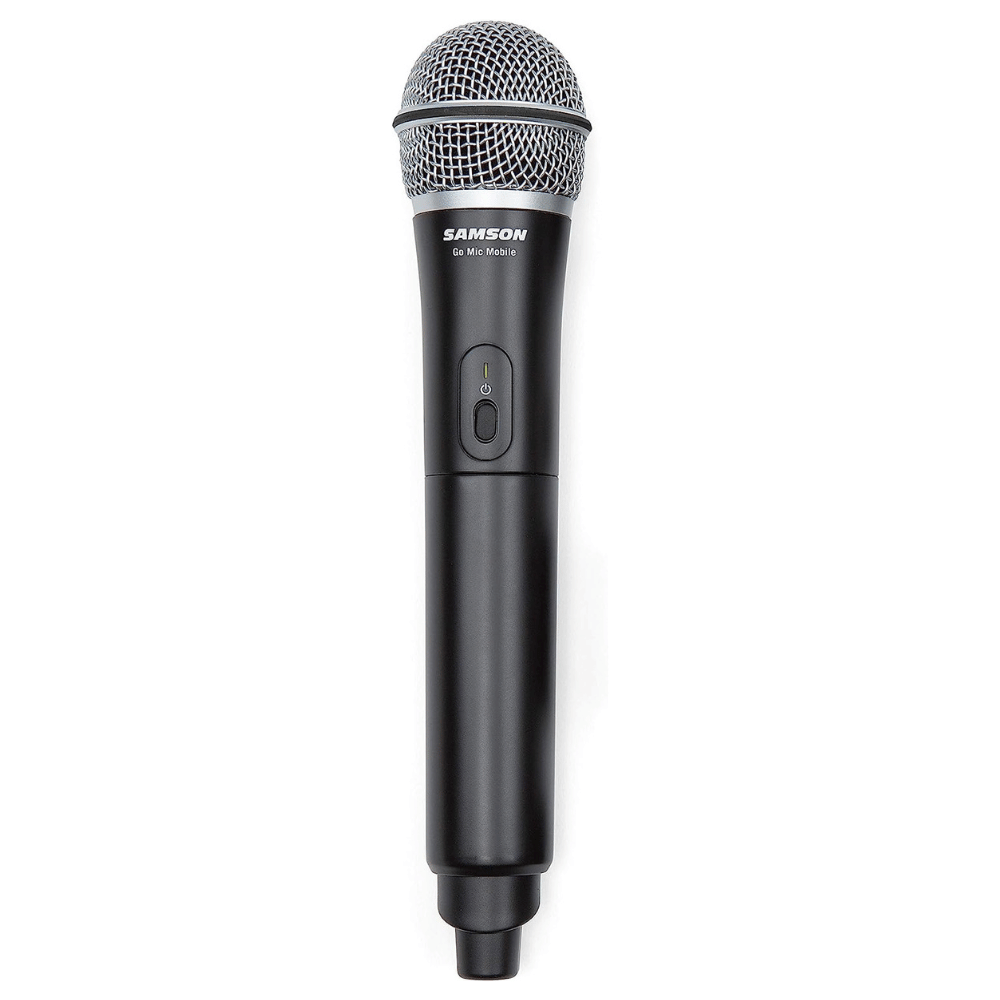Set Your Voice Free With The Best Wireless Microphone! 🎤

If you're in the market for a wireless microphone but don't know which one to choose, then you've come to the right place! We're bringing you up-to-date information on what's considered to be the best wireless microphones of 2023. With an array of features and capabilities, it can be tricky deciding on one specific mic - that's why we've compiled this comprehensive list with all of your top contenders. So if you want to make sure that your sound is crystal clear – whatever your budget may be – read on for our ultimate guide on the Best Wireless Microphones of 2023!
How We Chose The Best Wireless Microphones! 🏆
It's tough to find the right wireless mic for your needs. You might not have the time or energy to research all of the different options out there.
Not only is it tough to find the right wireless mic, but it can also be expensive. If you don't know what you're looking for, you could easily spend hundreds of dollars on a microphone that doesn't work well for you.
We've done the research for you and found 3 great microphones that will work well for any budget. Whether you're a beginner just starting out or an experienced karaoke singer, we have a microphone perfect for you.
Shure GLXD24/SM58
Product Highlight - The Best Overall Wireless Microphone 🥇
Why We Love This Mic ♥-
Are you looking for the perfect wireless microphone? Look no further than this Shure wireless microphone system, the top of the line choice! The microphone included doesn't just sound amazing both indoors and out - it's got an impressive battery life too. That's right - up to 11-12 hours of clarity and accuracy means you don't have to worry about running out of juice in the middle of your performance.. This product is sure to make you look like a true professional without all the hassle! Don't take our word for it - try it out today and be wowed by this ingenious piece of audio equipment!
What You Should Know About This Mic-
Shure's GLXD24/SM58 is an impressive wireless mic system that comes with an also very impressive microphone. With a 20 Hz-20 kHz response and 120 dB dynamic range, this mic can keep up with both the highs and lows of your project. And, being made by a company that has supplied musicians and sound engineers with quality audio equipment for nearly 100 years, you can rest assured knowing that you're getting a reliable package. But it doesn't stop there; each purchase also supplies you with the top-of-the-line GLX-D Digital Wireless Microphone System, making sure you have all the equipment needed to make those studio sessions truly wireless!
AKG Pro Audio DMS100
Product Highlight - The Best Valued Wireless Microphone 💰
Why We Love This Mic ♥-
Are you in need of a wireless microphone that won't break the bank? Well look no further! The AKG Pro Audio DMS100 gives you high-quality sound without having to stretch your budget too far. This pro-level mic is perfect for those who want to capture every detail of their performance with multiple mics at an affordable price. With its noise-cancelling qualities, it's great for recording and live performances alike. And with its lightweight design, you can easily carry it around wherever you go. So don't worry about emptying your wallet; get the AKG Pro Audio DMS100 and make sure all your audio needs are taken care of!
What You Should Know About This Mic-
Are you in need of one of the highest quality wireless microphone systems that packs a real punch without the hassle of setting it up? Look no further than the AKG Pro Audio DMS100 Digital Wireless Microphone System. With its lightning-fast setup and industry-leading features, this system has what it takes to make any session run smoothly. It's clearly designed for pros, with its 24-bit, 48kHz resolution and linear frequency response - two features rarely found in other wireless mic systems and wireless mics. So don't let difficulties stand between you and good sound - AKG Pro Audio has you covered!
Samson Go Mic Mobile HXD2
Product Highlight - The Best Wireless Microphone On A Budget ✂💸
Why We Love This Mic ♥-
If you’re looking for an affordable and high-quality way to make a statement, the Samson Go Mic Mobile HXD2 is for you! This mic has all the power of professional-grade equipment at an unbeatable price. Plus, it’s super easy to set up. Just plug in and turn on – it’s like flipping a switch! You don’t even need wires – this mic runs on battery power so you can take it anywhere. The Go Mic Mobile HXD2 gives you the freedom to use the mic wherever the moment takes you and get amazing sound quality with crystal clear audio. Perfect for those just having fun with mics, or on a budget – either way you won’t be disappointed with this amazing piece of technology. What are you waiting for? Get your voice out there today with the Samson Go Mic Mobile HDX2!
What You Should Know About This Mic-
With the Samson Go Mic Mobile HXD2, you can forget about running out of power mid-recording. Powered by two AA batteries, this impressive budget wireless mic offers up to 20 hours of battery life - a rarity even amongst higher priced competitors! The frequency range is also surprisingly wide, covering 100 Hz–20 kHz/101 dB SPL, meaning you don’t have to worry about compromising on sound quality. The only potential snag worth being aware of? Its Bluetooth receptor has been known to have compatibility issues with newer iPhones and certain other phones - but if that doesn’t concern you, this one's definitely worthy of your consideration.
Frequently Asked Questions (FAQs) When Looking For The Best Wireless Microphone? 💭
Wireless microphones can be confusing, especially if you're not familiar with the technology.
You might be wondering what wireless microphones are, how they work, and what the benefits are.
We've compiled a list of the most frequently asked questions about wireless microphones so that you can learn more about this technology and decide if it's right for you.
What Interferes With Wireless Mics?
Wireless microphones have become essential tools in almost every audio-visual toolbox. From TV production to live theatre events, these handy pieces of equipment have revolutionized how sound is captured - but like all technology, they can encounter interference from time to time.
The most common types of signals that interfere with wireless mics are known as RF (radio frequency) signals. These waves travel through the air and can be sent out by a variety of sources such as cordless phones, Wi-Fi networks, Bluetooth devices and even microwave ovens! Depending on their strength, some RF signals will cause intermittent dropouts or static noises during transmission; others might prevent your mic from working altogether.
In addition to external radio frequencies, other items like walls or large metal objects can also block the signal being transmitted by your microphone. Distortions in the forms of echo or reverberation can also occur if surrounding objects reflect back any sounds picked up by your mic before it reaches its destination. Finally, obstructions within the line-of-sight between a transmitter and receiver can cause signal loss due to poor reception; this problem occurs more often when using directional antennae compared with omnidirectional ones as well!
Fortunately there are ways you can reduce potential interference for wireless mics: firstly make sure you switch off any nearby electronic devices that send out RF signals while you’re recording/broadcasting; secondly if possible rearrange furniture/items so that nothing blocks the path between receiver and transmitter; thirdly buy an additional set of antennas designed specifically for indoor use which provide better coverage than outdoor antennae usually do (though they come at a cost). In conclusion —nowadays we rely upon wireless mics in almost every audio situation—but unfortunately sometimes outside causes beyond our control come into play causing unwelcome interferences…so just remember it pays off having knowledge about how these microphones work before investing into one!
How Far Can A Wireless Mic Transmit?
The range on a wireless microphone depends on what type you’re using and the power of your signal, so it can vary greatly. Generally speaking, you can expect to get around 100 feet of range before experiencing any significant drop-off in sound quality. However, if you upgrade to a professional grade mic and/or boost your signal with an amplifier or antenna, that range increases drastically. You could easily get up to 300 or even 400 feet with the right setup!
At the same time though, don’t be too ambitious—there are still some limitations to how far a wireless device will transmit sound. Even with an upgraded mic and signal booster, places like outside buildings or large expanses of open land may not work since interference from competing signals (cell phones for example) can interfere with your transmission over long distances. All in all though, if you plan accordingly and use better equipment as needed for more range then there should be no problem getting plenty of distance out of your wireless mic system!
How Long Do Wireless Mics Last?
Wireless microphones can last a very long time if taken care of properly. In fact, it is not unusual for professional wireless mics to still be used after 10-15 years without any maintenance and repair. Of course, this depends on the type of mic and its quality.
Generally speaking, the battery life in wireless microphones likely won't last longer than 8 hours for most single charge models. However, some higher quality models can provide up to 30+ hours of continuous use before needing a recharge. Additionally, many manufacturers now offer special batteries that are designed to maintain their charge over an extended period of time - even when they aren’t being used!
Another key factor that affects how long your wireless microphone will last is environmental conditions like humidity and temperature since these play a significant role in degrading components and draining batteries faster than usual. Also keep in mind that dropping or mishandling your mic could seriously damage sensitive parts such as transducers or receivers which might require replacing after repeated use or with age regardless off what kind of care you give the device itself.
All things considered though if you want your wireless microphone to last as long as possible then make sure it is stored properly (away from heat sources) when not being used along with regular maintenance checks by authorized technicians every 6-12 months depending on how often you use it professionally/personally etc. That way you can at least guarantee yourself great sound quality & maximum performance out of your gear – no matter how old it may get!
How Do I Choose A Good Wireless Microphone?
Choosing a good wireless microphone can be tricky. After all, there are so many options out there! But fear not - with a few key tips and tricks, you'll be well on your way to getting the perfect microphone for your needs.
First of all, think about what you will use the mic for. Are you interviewing someone? Recording podcast episodes? Singing karaoke? Depending on your purpose, some mics may be more suitable than others. The next step is to take into account range and reliability – how far can it go without losing connection quality? How often does it drop out? Does its design lend itself to securing onto clothing or instruments if needed?
Another important factor is battery life; nobody likes running out of juice halfway through an event! It’s also worth looking at features such as frequency response range (how much sound it picks up) and noise reduction technologies that eliminate background noises while maintaining clear audio. Different wireless mics come in different shapes and sizes too; do you want one that's lightweight or something heavier-duty designed for larger venues and louder volume levels?
Finally, don't forget to consider price when shopping around - you don't always need the most expensive mic available but ensure that whatever kind of microphone purchased meets necessary technical requirements. With these tips in mind, choosing a good wireless microphone should become easier - happy hunting!
How Can I Improve My Wireless Mic Signal?
If you're looking to improve your wireless mic signal, there are a few solutions that you can explore. First and foremost, make sure that you check the battery for your wireless mic and replace it when necessary as low batteries can cause interference. You should also ensure that the antenna on your microphone is placed optimally so it's in range of the receiver signal. Additionally, try removing any potential sources of interference like other electronics or electrical appliances near where you're recording. This could be anything from cell phones to televisions to microwaves, so if possible move them away from the area while recording. Finally, invest in a quality microphone with good range capabilities - this will give you better reception and sound quality regardless of distance between transmitter & receiver.
How Do Wireless Microphone Systems Operate?
Wireless microphone systems operate by transmitting sound waves over radio frequencies, much like any other form of wireless communication. The receiver picks up the transmitted sound and turns it into an electrical signal which is sent to an audio mixer or amplifier. The sound waves are broadcast at a specific frequency range so that only the intended receiver can pick them up, thereby ensuring your privacy when you're belting out your favorite karaoke tunes!
The most common type of wireless microphone system is known as UHF (Ultra High Frequency) which operates between 500MHz and 1GHz frequency ranges. However, VHF (Very High Frequency) systems also exist and these are generally preferred for larger scale applications such as stage performances or concerts due to their higher power capabilities and improved bandwidth efficiency.
In terms of transmitter design, there are two main types: handheld transmitters and bodypack transmitters. Both work in similar ways but differ significantly in size; handheld versions are typically bulkier while bodypacks offer more portability due to their smaller form-factor. Additionally, both types come with interchangeable batteries so they can be used for extended periods of time without needing to recharge them constantly.
No matter what type of system you have though, one important consideration when using a wireless microphone is that it needs line-of-sight between the transmitter and receiver -- meaning that the distance between them should be kept relatively short if possible - otherwise you'll run into issues with interference from other nearby signals or obstacles blocking your connection altogether!
What Do I Need To Know For Finding The Best Wireless Microphone System?
If you’re looking for the best wireless microphone system, then you’ve come to the right place! There are a few key factors to consider when shopping around so that you can find the perfect solution for your needs.
First, it is important to figure out what type of setup will be most suitable. Are you using a booth in your studio? Will it need to be used outdoors or in other large spaces? Will it have multiple mics running at once? All of these considerations should influence which system and model that ultimately ends up in your arsenal.
Second, take into account what kind of quality you need from a sound perspective. You want something with clear sound across all frequencies and minimal dropouts or interference. So look for models with good range and built-in features designed specifically for noise reduction or interference management as well as frequency selectivity on some models.
Finally, think about cost vs performance when comparing systems side by side - this could mean sacrificing more expensive options if they don't provide any notably better results than cheaper ones. Ultimately, there are many great wireless mic systems available - make sure you do enough research and get hands-on with each prior to making a final decision!
Why Are Wireless Systems Included With Wireless Mics?
Wireless systems are a must-have for any aspiring sound engineer, broadcaster or singer. They allow creative freedom and flexibility without being tied down to cables and cords. Not only do wireless systems provide an enhanced user experience, but they also come with many benefits that make them invaluable.
One great benefit of wireless systems is their portability - you can take your setup just about anywhere! Wireless mics allow you to be mobile while capturing the audio you need in multiple locations. Most kits come with a transmitter and receiver so that once the microphone is set up, all you have to do is plug it into the transmitter which will then send a signal directly to the receiver connected to your audio recorder.
Another important advantage of using wireless mic kits featured microphones is their improved accuracy compared to wired microphones; this means when broadcasting live events or recording music, there's less "noise" generated from unwanted sources like mechanical vibrations or poor reception due interference from nearby radio signals. This allows for greater clarity in sound capture as well as more control over who hears what in large audiences where multiple people are speaking or singing at once.
For those looking for professional-grade sound quality, there are many options available on the market today such as Shure's UR Series digital wireless microphones which boast digital transmission technology for premium audio fidelity with reduced latency even at very long distances away from its source (up to 300ft!). The Audio Technica System 10 PRO features channel scanning capability allowing it pick up clear frequencies even when within range of other broadcast signals increasing their versatility even further! For an economic solution, consider investing in Behringer’s XM8500 Dynamic Microphone Kit – providing excellent value no matter what type of application you’re planning on using them for (recording vocals/acoustic instruments, broadcasts etc).
So why get a wireless system? Wireless mics give users more possibilities than traditional corded setups - they offer unlimited mobility + ultra reliable connection with minimum setup time + increased accuracy & clarity over long distances - making them perfect choice if voice fatigue & loss of musical expression occur too often when plugged into cabled set ups!
What Is A Cardioid Microphone?
The cardioid microphone is essentially a superhero of the audio world. It has earned its reputation for providing superior audio quality on stage and in the studio. Through clever engineering, this mic has been designed to capture sound from one direction while blocking out all other noise from behind, making it ideal for vocalists, presenters, and performers who don’t want their speech or performance to be drowned out by any other audio.
But what makes the cardioid microphone so special? Well, it takes engineering genius to make something like this work; inside each cardioid mic lies an incredibly intricate design that's scientific and yet also artistic at once. You see, when a vocalist sings into a cardioid microphone they are singing into two diaphragms which have been carefully calibrated to pick up different frequencies—or "polar patterns", as they're technically known—while rejecting anything that lies outside those frequencies. This allows them to focus on what matters most: their voices!
The fact that these mics can block off certain frequencies within such precision leads us back to its cape-wearing hero status; this superhero works hard so we don't have to worry about unwanted feedback and interference ruining our performance or recording session! Of course as with all superheroes there are limits; many experts suggest using more than one cardioid style microphones when you need even greater directional accuracy (for example in studio recordings). However overall this type of mic remains extremely popular amongst professional artists due its clarity and ease of use - no wonder it's found itself dubbed 'the king of mics'!
Time To Finally Set Your Voice Free With The Best Wireless Microphone Of Your Choice!
After all is said and done, this wraps up our list of the best wireless microphones on the market. So do your research, take our advice into consideration, and make sure you are getting the best microphone for your needs. With that knowledge under your belt, you should be ready to take it to the next level - with a brand new wireless microphone in hand. Don't postpone any longer - go and find yourself a reliable wireless microphone and unleash your inner diva (or dude!). Singing from the rooftops was never easier - thanks to the top of the line microphone products we mentioned!
More For You ⬇🎤⬇












